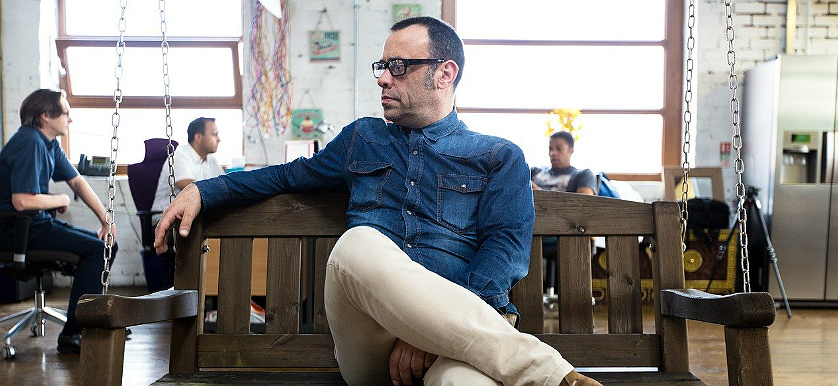Reconnection – Changing the way we perform in life and at work

Whilst Christmas is the period of merriment, it is also a time of introspection and remembrance. The holiday spirit fills everyone with a feeling of thoughtfulness, as we begin to ponder about the year that has just passed. As employees, this is the time of the year when you rewind your activities & experiences thus far and think about the future, about what’s to come next.
Now it is finally the right moment to take a breather and spend some quality Me-time. You have to reel in your emotions & thoughts and try to figure out what made you angry, happy, sad or elated and strive to repeat the positives, without the negatives. In doing so, you can experience reconnection with yourself, so as to be in tip-top shape for a new year of outstanding work performance.
The human state of mind
However, not everyone can do this exercise of will on their own. One topic which oftentimes gets brought up around this time is that concerning those of us who are less fortunate than others and require greater-than-average care or assistance. One such group of individuals are those suffering from two of the most increasingly-wide spread psychological human conditions – depression and anxiety.
Whilst these terms get thrown around today way too liberally, we’d do people a great injustice if we were to ignore the fact that depression is the leading cause of mental disabilities worldwide, anxiety the 6th.
This is just one of the statistics that reflect how seriously these conditions affect all of us regardless of our work; not that those who ever felt signs of crippling anxiety or irrational fears would need these numbers to comprehend the burden of an ill mental health state.
This is why self-help and other problem-solving books are (almost) unbelievably popular these days. We are inclined to believe that only we, alone, can overcome our anxieties and fears. We are manically inclined to turn towards self-improvement, yet asking for help or even looking for help around us is still somehow considered a weakness and oftentimes frowned upon at work & home.
We want to find private and personal solutions to anxiety, solutions that come from “within ourselves”. However, happiness is a social thing and the more we realize this, the better off we are. “Self-help works for us as individuals- but as a society we’re failing”- says an opinion piece in The Guardian. If we were to take a gander at some numbers, we’d see that we are indeed failing.
Here are some not so fun facts about our mental health:
- The rising cost of failing to tackle the ongoing mental health crisis brings an estimated loss of US $ 16 trillion to the global economy (2010-2030). It is “driven, in part, by the early age of onset and loss of productivity across the life course”.
- Around 450 million people suffer from mental disorders worldwide. For comparison: the population of the USA is around 329 million.
Journalist Johann Hari wanted to understand why with each passing year, more and more people find it difficult to get through the day. He found out that so far, we have scientific evidence for nine different causes of depression and anxiety, only two of which are solely biological.
The other causes are factors which lie in the way we live, which entails that some of the solutions could be rooted in changing how we go about our daily existence. Logical, isn’t it? In his book, Lost Connections, Johann Hari defines depression as a feeling of disconnection. Let us explore the various ways in which he explains this form of detachment.

Disconnection from people
We are lonelier than our ancestors, for sure. We’ve been taught (and we’ve experienced) that complex problems require cooperation, yet today’s present generations of adults & young adults are so individualistic that they look to solve their issues alone, instead of as part of a community.
Disconnection from nature
Studies have shown that people who have moved to locations featuring more greenery saw a reduction in depression, while people who moved away from greener areas saw an increase in depression. While it may not be just that easy, it does give us some insight into how people are affected by their environment.
However, while our highly developed industrialized nations provide us with safety and well-being (we have food to eat, we are not in constant fear for our lives), it has been proven numerous times that we benefit tremendously from being in nature, from time to time.
Could it help with our anxiety? Could it help us deal with the symptoms of depression? Johann Hari and many other researchers claim such an activity can only yield positive results for our mindsets.
Disconnection from meaningful work
Here’s why a story about two of the most widespread mental conditions – anxiety and depression, can make its way in a magazine about performance. If the fact that depression is one of the leading causes of absenteeism from work is not enough, Gallup’s 142-country study from 2011 revealed some frightening statistics about the state of the global workplace.
- 63% of respondents lack motivation and are “less likely to invest discretionary effort in organizational goals or outcomes”
- 24% of respondents are actively disengaged, unhappy and unproductive and “liable to spread negativity to coworkers”
- Only 13% of employees are actively engaged at work: 13% are those who work with dedication, those who love what they do
Bonus piece of information for performance managers in particular: fewer than three in 10 employees in the U.S., U.K., Spain, France and Germany strongly agree that their performance is managed in a way that motivates them to do outstanding work.
“You aren’t a machine with broken parts. You are an animal whose needs are not being met. You need to have a community. You need to have meaningful values, not the junk values you’ve been pumped full all of your life, telling you happiness comes through money and buying objects. You need to have meaningful work. You need the natural world. You need to feel you are respected. You need a secure future. You need connections to all these things. “ – Johann Hari
More and more people feel that their work is meaningless, that they are not actively contributing to anything or hold the feeling that they are achieving nothing.
Those who have no control over their own decisions at work, those who have no authority, those who are not listened to and whose ideas are constantly dismissed: those people are the ones who are at risk of depression and workplace burnout.
We need to find ways to reconnect ourselves to the concept of professional fulfillment, to society and to meaningful values, in general.
Image sources:

Tags: mental, Mindfulness, Personal Care, Personal performance





